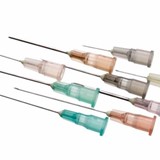These medical research projects are just three out of thousands that could use more funding.
Nanotechnology for paediatric cancer
Paediatric cancer affects the whole family, and research projects can help not only the children but their parents and siblings too. The Children's Cancer Institute funds many research projects that innovate for the treatment and cure of paediatric cancer.
A recent research project on Nanotechnology offers new technology targeting genes that mediate drug resistance or growing cancer tumour cells. It may reduce the toxicity or improve the specificity of anti-cancer drugs. With the possibility of reducing side effects of cancer treatments for children, there are immediate and real benefits for this research.
Dementia care projects

One of the innovative dementia care projects investigates support systems that help people remember daily life. The research aims to understand the support systems in place for older adults with memory loss. This includes family, diaries, iPhones and how these types of resources are used.
With an ageing population, the prevalence of dementia has increased over the last ten years. This dementia research can benefit many patients to plan and consider support before disease progression.
Australian melanoma research
Australia has the highest rate of melanoma in the world, and new research is necessary to save lives. The Australian Melanoma Research Foundation is working with many research groups worldwide investigating how more frequent, smaller doses of chemotherapy can be effective in 'controlling' melanoma.
Investigating immune cycles holds the key for timing of chemotherapy or vaccine therapies to match the fluctuation in each patient's own immune system. This research can also save costs in pursuing research in complex technology and other treatments.












